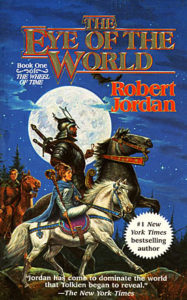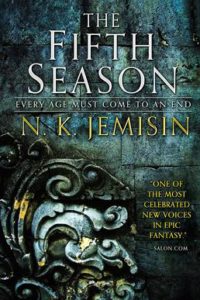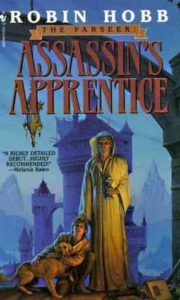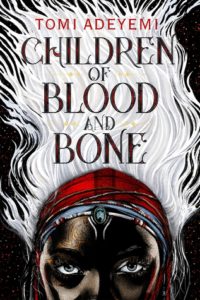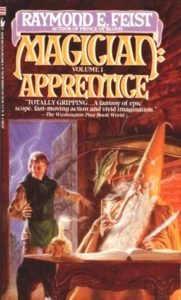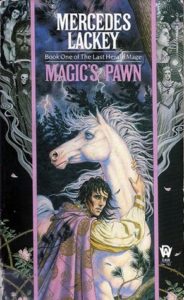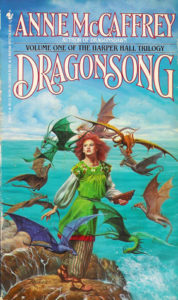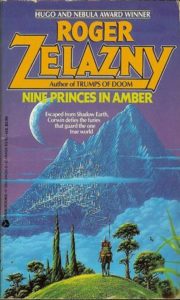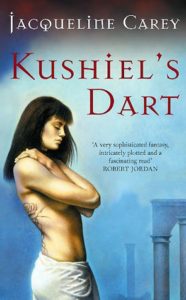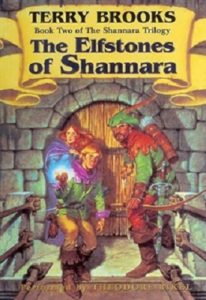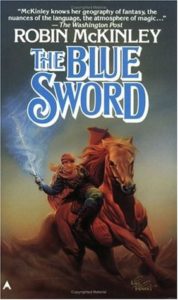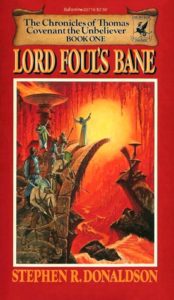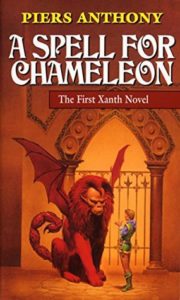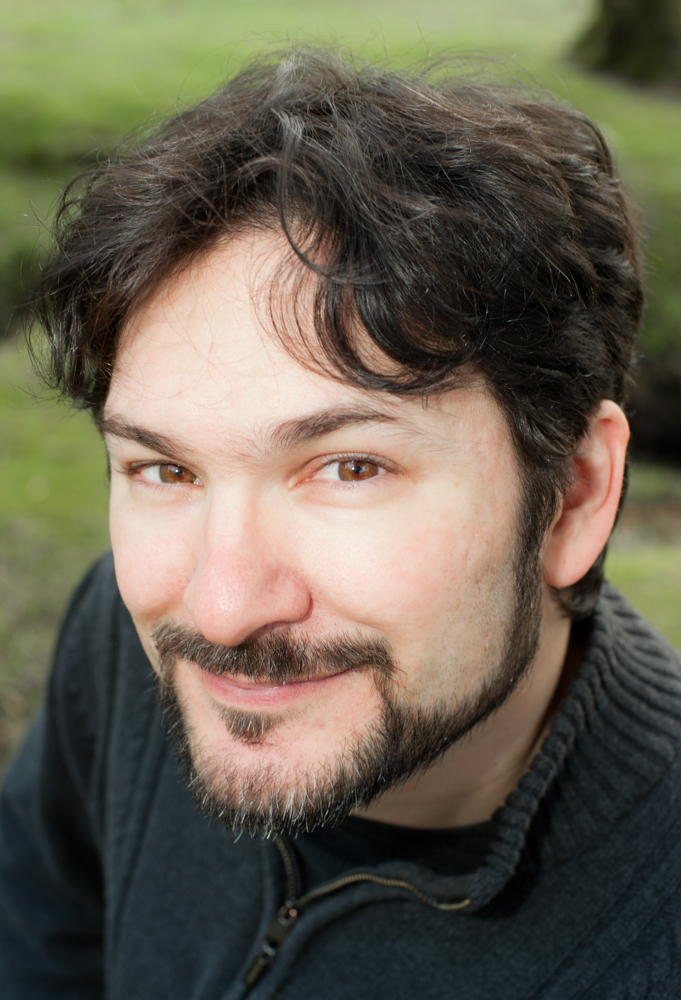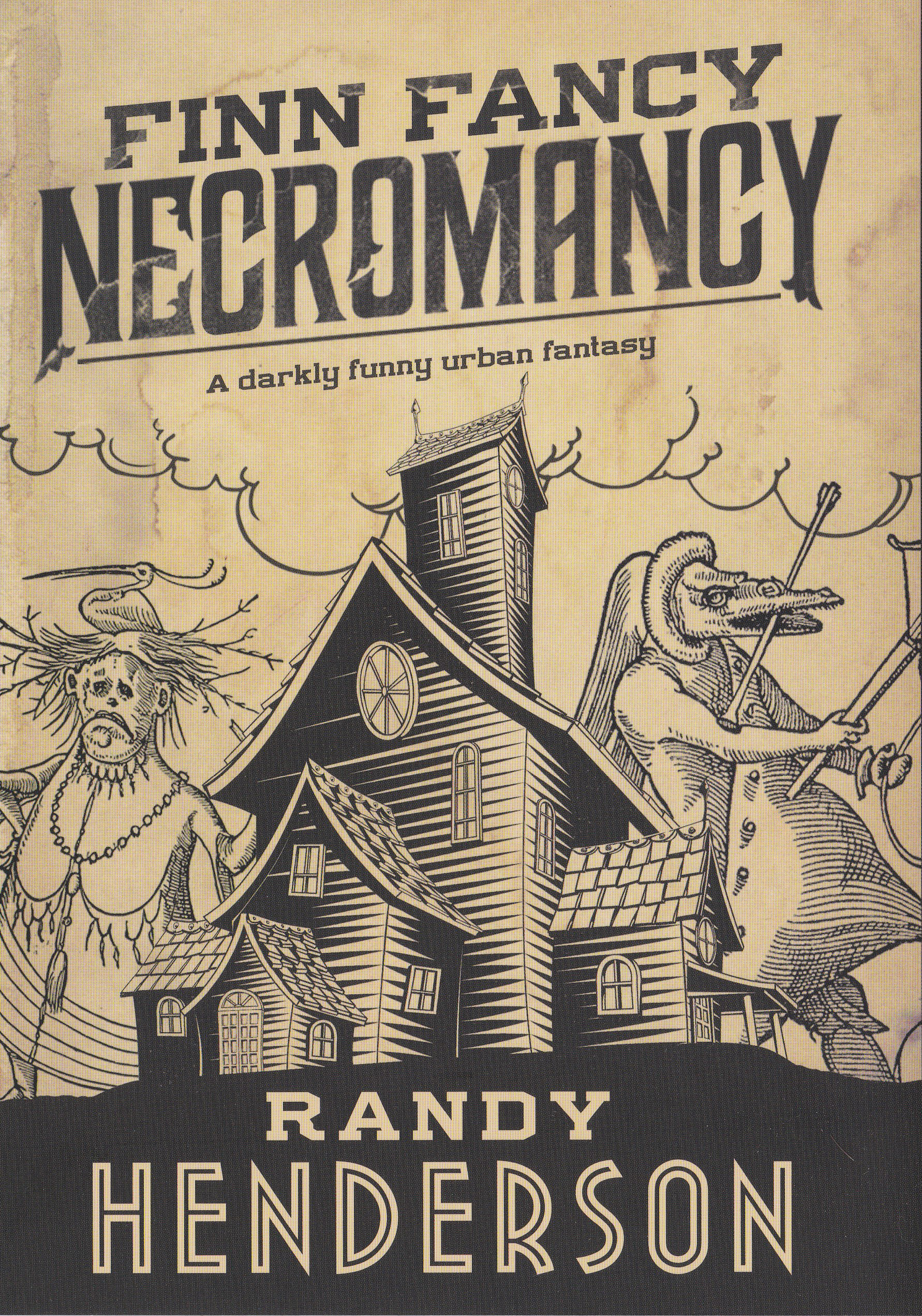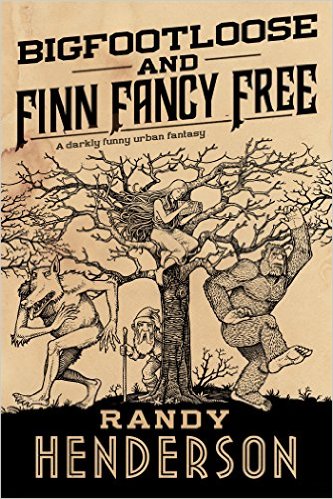I was recently asked for recommendations for “entry books to fantasy.”
Well, different people like different things of course, and there are many subgenres of fantasy so for this list to be of manageable size I will limit myself to the more classic second-world sword and magic type fantasy (and we will just assume Lord of the Rings is somewhere in there).
The list is also, naturally, limited by the books I’ve actually read (which may not be the books others have read).
I will start with a few modern fantasy series, then dig into the more classic series that I think are broadly popular and would form a pretty solid foundation in fantasy for a reader.
My recommendation would be to alternate between reading one of the modern fantasy series recommendations, then a classic series, then another modern series, etc.
RECENT FANTASY:
I will get into the most trouble here for omissions probably, but that is just because nobody can have read all the books that everyone else has read, and I can’t even remember all the books *I* have read and LIKED, there are just too many. And again, tastes vary, and I am not covering things like Urban Fantasy here. But off the top of my head:
- The Fifth Season by NK Jemisin. An example of the best of what modern second-world fantasy can be.
- Farseer: Assassin’s Apprentice by Robin Hobb. A great series for well-developed characters and emotional rollercoaster plots.
- Children of Blood and Bone by Tomi Adeyemi. An Avatar Last Airbender/ Korra homage done right, that swaps in West African culture for the Asian culture and is deeply impactful in the world it depicts and the story it tells. I think this is a good example of how to make readers feel impacted by an issue you care about without it being preachy or an essay.
- City of Stairs by Robert Jackson Bennett. A nice break from McEuropean worldbuilding. Starts slow then you can’t stop turning the pages.
- The Mistborn series by Brandon Sanderson. His most accessible series I think, a good showcase for his skill with creating cool magic systems. His more epic fantasy style series, Stormlight Archive, I find to be bloated with description and exposition that really bogs me down, but that’s a taste thing, many people love that level of detail in their fantasy.
- Lies of Locke Lamora by Scott Lynch. Roguish fun with brilliantly depicted characters.
- Name of the Wind by Patrick Rothfuss. A LOT of people love this book, and he does good things with his money. I loved the language, and the worldbuilding, not so much the meandering plot, or the completely random ending. But again, this is hugely popular, so I tend to just assume I’m missing something. There really is lots to love about his writing, and certainly this book influences lots of folks and will come up in most conversations about fantasy books.
Foundational Classics I Found Fun to Read
These will build a strong classic fantasy foundation. Again, not counting LOTR:
- Wheel of Time by Robert Jordan. A sort of culmination/ kitchen sink of all the earlier commercial epic fantasy up to its time, a good fun place to s tart if you want to read just one series maybe, but it is14 books and he gets bloaty/ bogs down a bit from book 6-11. Bonus, you’ll be able to make jokes about well-turned calves and tugging braids with everyone, and discussing the series’ pros and cons. It’s sort of like a fun boot camp for commercial epic fantasy. Certainly read Eye of the World.
- Riftwar Saga (Magician, Silverthorn, Sethanon) by Raymond E. Feist. This classic has a wonderful arc that spans worlds, and lots of old school awesome magic. And I really loved the evolution of the main characters into heroes with the weight of the world on their shoulders.
- Heralds of Valdemar by Mercedes Lackey. My favorite arc was “Last Herald of Valdemar” trilogy (starts with Magic’s Pawn). There is also Arrows of the Queen, her original trilogy, but she was still emerging as a writer during this and it shows a bit (PoV head hopping etc). And I also loved Oathbound and Oathbreakers. Again, these books have lots of FEELS, a cool magic system, and soul-bound magical horses among other things.
- Dragonsong and Dragonsinger by Anne Mccaffrey (and the Dragonriders of Pern trilogy). The Dragonriders trilogy is one of the foundational classics of the genre (though arguably it is science fantasy), though I prefer Dragonsong/Dragonsinger for a quick and easy read with lots of FEELS and fire lizards!!! (think miniature dragons that act like cats)!
- Wizard of Earthsea by Ursula K Le Guin. Quick read by one of the greatest writers.
- Chronicles of Amber by Roger Zelazny. Another quick and easy read, one of the first 1st person perspective fantasy books I ever read, and it starts off in our world then quickly takes you on a journey to others. Also, the first book is a mystery as well.
- The Golden Compass by Philip Pullman. A fantasy series with something to say.
- Kushiel’s Dart by Jacqueline Carey. A prime example of good erotic fantasy with deep worldbuilding, intrigue and plotting.
- Elfstones of Shannara by Terry Brooks. Just read a synopsis of Sword of Shannara (if you’ve read LOTR, no need to read Sword of Shannara, but it gives context for Elfstones). Read it before watching the show if possible.
- Chronicles of Narnia by C.S. Lewis. Quick reads, what would be considered middle grade or YA today, and is heavily allegorical, but one of the cornerstones of fantasy for sure.
- The Blue Sword by Robin McKinley. A kickass female lead and a strong influence on many fantasy writers, including I would argue on George RR Martin’s Daenerys and the Dothraki.
- Dragonlance books by Margaret Weis and Tracy Hickman – Example of the right way to turn D&D into fiction, literally. I also highly recommend the Death Gate Cycle by Weis and Hickman, one of the best examples of creative worldbuilding and storytelling based on worldbuilding.
- Vlad Taltos series by Steven Brust. Unapologetic rogue/ assassin character with a pet mini-dragon. Doubtless inspired future writers of rogues and assassins.
2X. Chronicles of Prydain: Like Narnia, this was a series many fantasy readers discovered at young age. Published in the 60s, it helped give us many of the tropes of later fantasy novels, and it gave us the most boring animated film from Disney to that time in “The Black Cauldron,” where I can only assume they were trying to emulate the dark somber tone of the animated Lord of the Rings — bad move, Mouse.
Foundational Classics that are maybe more difficult to read but round out your fantasy cred/ understanding of modern fantasy inspirations
- Dragonbone Chair (Memory, Sorrow, and Thorn trilogy) by Tad Williams. This series influenced many fantasy writers to come, it took the tired McEuropean epic fantasy and reimagined it, added deep mythic and literary juice to them. That being said, for some reason I tend to bog down in book 2 while reading it personally. Totally worth pushing through and reading though, you will be rewarded for the effort.
- Chronicles of Thomas Covenant by Stephen R. Donaldson. This one is very rich in worldbuilding and detail and magic, I escaped into the Land as fully as into any fantasy world, definitely one of the foundational works, but it is dark as heck, full of angst and internal struggle, and it has a rape scene early in the first book which, while the consequences play out across the entire series, it remains an obviously problematic and unpleasant issue with the book and the series.
- The Belgariad by David Eddings. Lots of people who grew up reading fantasy in the 80s love this series. Me, all I remember is skimming a lot because it takes classic fantasy tropes you can get in other books, and adds lots of travel.
Basically, if your favorite part of the Lord of the Rings movies were those long bits where they are walking across mountaintops and rowing down the river and running across fields, then this is the series for you.
- Gardens of the Moon: Malazan series by Steven Erikson. This is an ambitious series that spans generations, where you get to see the events of history play out and change the world. It is not an easy read, I would argue, very dense and doesn’t make things easy for the reader, but the scope is very impressive once you do.
- The (early) Xanth books by Piers Anthony. These were the commercial candy of the fantasy world in the 80s, I devoured them in my early teens, and the early ones are arguably a fun easy read. They were hugely popular so if you want to be versed in a series that influenced many young fantasy readers then read the first book. But as my frontal lobe developed/ I broke out of my bubble I came to realize they get pretty misogynistic and borderline creepy at times, especially as the series continued. The Blue Adept series was, I thought as a young lad, cool in how it bounced back and forth between a fantasy world of magic and a scifi world with robots etc. but man, the misogyny really shows in that series and I can’t read it now without feeling icky. Incarnations of Immortality series is also by him, and was popular.
HONORABLE MENTIONS
There are many books/series that I did not list above that are perfectly great but there’s a certain point after which a list of recommendations becomes so long that a reader doesn’t feel inclined to pick ANY of the books from it because there’s just too much info. I may have already hit that length, in fact.
And my list was meant as sort of “building a foundation in popular fantasy” reading list, not just a list of books I loved. But I still wanted to give a shout out to the following books/series I highly enjoyed as well:
- A Darker Shade of Magic by V.E. Schwab (fun, fast fantasy read);
- An Ember in the Ashes by Sabaa Tahir (No holds barred page turner!);
- Steal the Sky by Megan O’Keefe (roguish fantasy fun!);
- The Sword Dancer: Tiger and Del books by Jennifer Roberson (foundational)
- The Last of the Renshai by Mickey Zucker Reichert (I threw the first book against the wall at the end, but then couldn’t stop myself from reading the rest of the series)
- The Coldfire Trilogy by Celia S. Friedman (incredible worldbuilding with a living world, and villain as hero).
- Psalms of Isaak series by Ken Scholes. Clever and fun fantasy/ science fantasy adventure that starts off with a bang. Literally, it starts off with a magical nuclear explosion.
- Game of something or other by George RR Martin. I think there’s a TV series or something. People seem to like it. I found the books to be a bit dense to get through at times but good fantasy.
- Book of Words series by J.V. Jones. A fun, straightforward fantasy that I enjoyed for its humorous observations by side characters, and the fact that it shows the characters actually learning and earning their skills.
- Kingdoms of Thorn and Bone by Greg Keyes. A great series that really geeks out on and does interesting things with language and music, with deep worldbuilding and magic.
- Master of the Five Magics by Lyndon Hardy. This is a foundational book for magic systems. It is, in fact, just one long geeking out about magic systems. It has influenced many fantasy writers, including myself.
Humorous Fantasy
I should also add that there are humorous fantasy series out there that fit within the sword and magic realm and are also pretty foundational, including:
37. The Discworld books by Terry Pratchett
38. Myth Adventures series by Lynn Asprin
IN CONCLUSION
Again, I’m sure I missed many series just for lack of having read them or them popping into my head as I wrote this.
And again, I was focused on sword and magic fantasy (high fantasy, epic fantasy, second-world fantasy et al) and not
- URBAN FANTASY e.g. Dresden Files, or Mercy Thompson, or Twenty-Sided Sorceress, or Loose Changeling.
- or YA FANTASY e.g. Harry Potter, or Throne of Glass.
- or FANTASY ROMANCE e.g. Death’s Dancer
But if you find even one series that you truly love from this list I will be happy.

